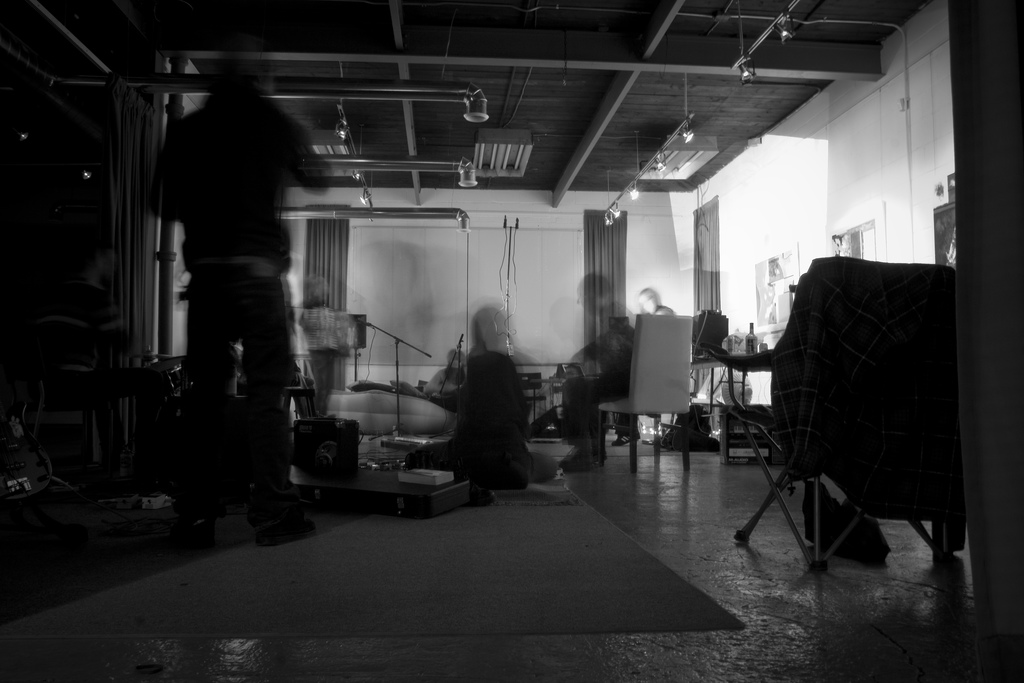Bandcamp broadens opportunity for emerging artists
September 15, 2016
Before the new frontier that is the internet, getting your music beyond your garage was an uphill battle for aspiring musicians.
Bandcamp, a new platform in the music sharing industry, makes reaching listeners as simple as a few clicks of the mouse and a couple strokes of the keyboard.
For aspiring musicians, there are many different aspects of success — Who you’re signed with, what you sound like and who you want your audience to be.
The challenge?
Making your music available to listeners in the first place.
Think about aspiring musicians. Shows like “The Voice” and “American Idol” come to mind, where people put their lives on hold for months to compete in front of audiences for a shot at a professional record contract.
But for singer/songwriter Alex G, a Pennsylvania native who began his career recording in his bedroom, Bandcamp provided the means to release six full-length albums without the aid of a reality show or record deal. He recorded the music in his home and built a passionate following. His sixth album, “DSU,” was featured in 2014 as a ‘Best Album’ by the Washington Post and Vogue Magazine.
Alex G and Elvis Depressedly, a lo-fi indie-rock group, became friends through Bandcamp. They both found success and were able to make a living through doing what they love. Money from touring allows them to make ends meet during recording periods.
Bandcamp, similar to SoundCloud, is interrupting the industry. It eliminates the need for professional producers to enter the music world. It offers independent musicians a platform to release and sell their work on their own terms.
And that work is selling. According to the Bandcamp website, fans have paid artists $173 million using Bandcamp since it launched in 2007. From August 15 to September 15, fans generated $4.6 million, the website said.
“We consider that a fine start, but only a start. We continue to work tirelessly to build an enduring service, one that treats artists fairly, puts them in control, and is integral to them building sustainable careers,” Bandcamp said in a statement on its website.
By comparison, the United States music industry generated $14.9 billion in 2014, according to statistics portal Statista.com.
Bandcamp is both for those who make music and those who listen to it. Each page is run by the musician. They can post new music, announce upcoming shows and recommend other Bandcamp artists.
Brittle Brian, whose name is Victoria Rose, says on her Bandcamp page that her lo-fi pop music was recorded in various rooms in her home near Boston.
Rose and other artists who record from their homes make up a genre known as “bedroom pop,” which strays away from the typical rock, pop and country that dominate the mainstream music scene.
To uncover lesser known genres like bedroom pop, users can navigate the website with the “Discover” button on the homepage. Listeners have access to an endless amount of songs on Bandcamp, and it has never been easier for aspiring musicians to reach a wider audience.
Artists set the price for each download or select the “pay what you want” feature. According to Bandcamp, allowing listeners to choose what to pay for the music significantly increases revenue. Die-hard fans will often pay far more than the set price to show support for their favorite musicians.
Downloading music from a website like Bandcamp makes users feel they are giving directly to the artist. This separates the music sharing website from big-name records label like Sony, Universal Music Group, and Warner Music Group on rival online music store iTunes.
Though Bandcamp takes 15 percent of a musician’s total profit, or 10 percent if the musician exceeds $5,000 in sales, the artist still has control over the price of their music.
On iTunes, single songs cost $.99 or $1.29. The default price for an album on that website is $9.99, but the label can raise the price. Additionally, record labels can make songs exclusively available with the purchase of an entire album.
On Bandcamp, this concept doesn’t exist.
There are no sign-up fees, production requirements or technical limitations. If an artist can make music, they can make money. Many musicians on the website record music in their homes or at an independent studio.
Because of this freedom, record labels like Epitaph and Run for Cover created Bandcamp pages to release new music.
The musicians found on Bandcamp are the types who buy their instruments at tag sales and thrift shops. They represent the do-it-yourself culture that is simmering in the industry.
Many won’t be found on popular music platforms like iTunes, Pandora, Spotify or the radio.
But for Maryland-based rock band Teen Suicide, Bandcamp made it possible to crack into that industry.
Last April, the band’s final album, “It’s the Big Joyous Celebration, Let’s Stir the Honeypot,” was released on iTunes.
Teen Suicide’s previous seven releases were through Bandcamp, which broadened the scope of its audience and made the jump to the mainstream music market feasible.
Brett Reardon can be reached at [email protected].
